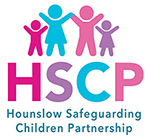Information Sharing
Early sharing of information is the key to providing effective early help where there are emerging problems. At the other end of the continuum, sharing information can be essential to put in place effective child protection services. Fears about sharing information cannot be allowed to stand in the way of the need to promote the welfare and protect the safety of children.
Learning from Serious Case Reviews reinforces the fact that both children and adults can suffer significant harm or death when professionals fail to share information. Good communication and appropriate information sharing between professionals is therefore a critical element of effective safeguarding practice.
Whether you are sending an e-mail to another professional, making a phone call or participating in a meeting it is important that your focus is on the safety and welfare of children and young people and that you share information consistent with the law and statutory guidance.
We positively encourage professionals to seek agreement to share information when it is right to do so and where doing so does not place a child or adult at risk.
Where there are good reasons to be worried about a child or adult’s safety or wellbeing the fact that there is no existing information sharing agreement between organisations or that the information is seen as “third- party”, should not be used as an excuse to fail to share. Your concern is sufficient to have a conversation with or seek advice from fellow professionals.
If you are worried about someone, you are allowed to talk with other professionals without fearing you are doing something wrong. You aren’t. Talking to each other and sharing information when trying to protect people from actual or likely harm or to prevent a crime is lawful and in the substantial public interest.
Our MASH exists to help ensure that relevant information from various agencies is available and accessible in one place. By ensuring all statutory partners have the ability to share information, the MASH helps to identify those children who are subject to, or likely to be subject to, harm in a timely manner, in order to keep them safe.

